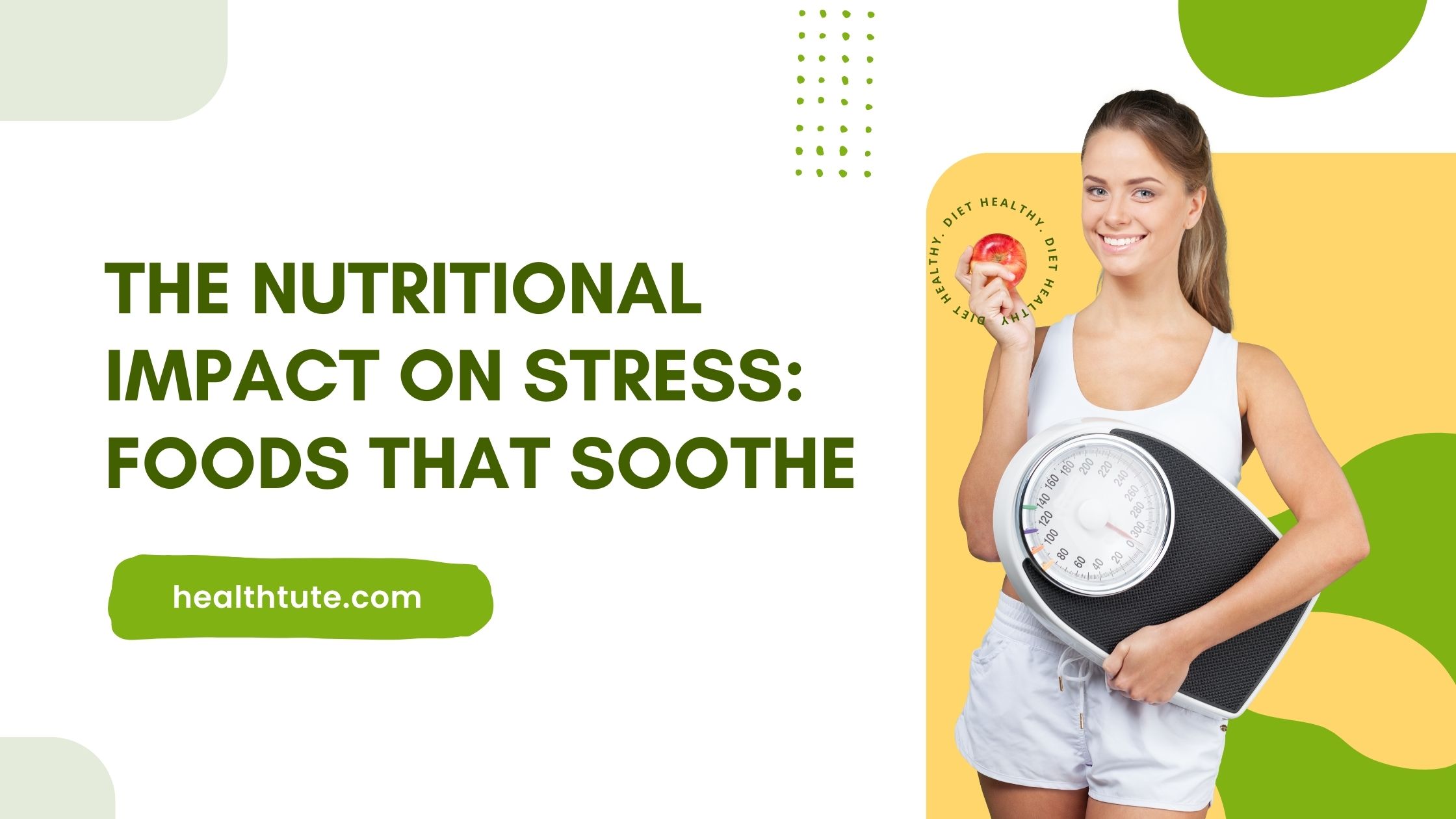In today’s fast-paced world, stress has become a common part of our lives. Balancing work, relationships, and other responsibilities often takes a toll on our mental and physical well-being. However, did you know that certain foods can have a significant impact on stress levels? In this article, we will delve into the connection between nutrition and stress and explore foods that can help soothe and calm our minds. By incorporating these stress-reducing foods into your diet, you can enhance your overall well-being and lead a more relaxed and fulfilling life.
The Nutritional Impact on Stress: Foods that Soothe
Stress can disrupt various bodily processes, leading to emotional and physical strain. Nourishing our bodies with the right nutrients can play a vital role in managing stress effectively. Let’s explore some foods that have a calming effect on our nervous system and can help alleviate stress.
1. Leafy Greens and Magnesium
Leafy greens, such as spinach and kale, are packed with magnesium, a mineral that plays a crucial role in relaxing our muscles and nerves. Magnesium deficiency is linked to increased anxiety and stress, so incorporating these greens into your diet can be beneficial for stress relief.
2. Blueberries and Antioxidants
Blueberries are not only delicious but also packed with antioxidants, which combat oxidative stress in our bodies. These antioxidants help protect our brain cells from damage caused by stress, thereby improving cognitive function and boosting our mood.
3. Nuts and Seeds for Stress-Busting Nutrients
Almonds, walnuts, flaxseeds, and chia seeds are excellent sources of stress-busting nutrients like vitamin E and healthy fats. Vitamin E acts as an antioxidant that helps maintain healthy brain function, while healthy fats support brain health and emotional well-being.
4. Dark Chocolate for Mood Elevation
Indulging in a small amount of dark chocolate can be a delightful way to relieve stress. Dark chocolate contains compounds that interact with the brain to enhance mood and reduce stress hormone levels, making it a perfect treat for those stressful days.
5. Herbal Teas for Relaxation
Chamomile, lavender, and peppermint teas have natural calming properties that promote relaxation and help alleviate anxiety. Sipping on a warm cup of herbal tea can be a comforting ritual to unwind after a long day.
6. Whole Grains and Serotonin
Whole grains like oats, quinoa, and brown rice trigger the release of serotonin in the brain. Serotonin is a neurotransmitter that regulates mood and promotes feelings of well-being, making whole grains an essential part of a stress-reducing diet.
7. Greek Yogurt and Probiotics
Probiotics found in Greek yogurt and other fermented foods promote gut health and help manage stress. A healthy gut is linked to improved mental health, reducing the effects of stress on our overall well-being.
8. Oranges and Vitamin C
Oranges and other vitamin C-rich fruits can lower cortisol levels in the body, making them valuable allies in the battle against stress. The refreshing taste of oranges can instantly uplift your mood and provide a much-needed energy boost.
9. Avocado for Healthy Fats
Avocado is a fantastic source of healthy fats that nourish the brain and support cognitive function. Including avocados in your diet can help enhance your ability to cope with stress and maintain mental clarity.
Frequently Asked Questions (FAQs)
Q: Can certain foods really help reduce stress?
A: Yes, the right foods can indeed have a positive impact on stress levels. Nutrient-rich foods can support brain health and help regulate mood, making it easier to manage stress.
Q: Are there any foods I should avoid to reduce stress?
A: Yes, some foods can exacerbate stress, such as sugary snacks, caffeine, and processed foods. It’s best to limit the consumption of these items for better stress management.
Q: How long does it take for stress-reducing foods to show an effect?
A: The time it takes for stress-reducing foods to show an effect can vary from person to person. However, incorporating these foods into your diet regularly can lead to gradual improvements in stress levels.
Q: Can nutrition alone treat chronic stress?
A: While nutrition plays a significant role in stress management, it is essential to adopt a holistic approach that includes exercise, mindfulness practices, and seeking professional support if necessary.
Q: Can stress-reducing foods be part of a weight loss diet?
A: Yes, many stress-reducing foods are also nutrient-dense and low in calories, making them suitable for inclusion in a balanced weight loss diet.
Q: Are there any potential side effects of consuming stress-reducing foods?
A: Stress-reducing foods are generally safe for consumption. However, it’s essential to be mindful of any food allergies or intolerances you may have and to consume these foods in moderation.
Conclusion
Incorporating stress-reducing foods into your daily diet can significantly improve your ability to cope with life’s challenges and enhance your overall well-being. Remember to prioritize nutrient-rich options like fatty fish, leafy greens, and dark chocolate, and limit the intake of stress-aggravating foods. Embracing a balanced diet, combined with other stress-management techniques, can empower you to lead a more relaxed and fulfilling life.

